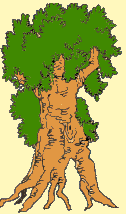Epilepsy
Understand the evil.
Epilepsy (also called comitiality, mal comitial, haut mal, ill caduc or sacral), is a neurological disorder, characterized by paroxysmal cerebral hyperactivity which may manifest itself by convulsions or loss of consciousness, or even by complex hallucinations inaugural (visual and / or auditory and / or somesthetic), with or without seizures Seizures are caused by electric shocks in part or all of the brain Anyone can have a seizure in their life, but you don't will only really speak of epilepsy in the event of chronic seizures: which recur over several months or years These convulsions can be triggered by various factors: excessive exposure to flashes of light (video games for example), brain tumor, alcoholism , after-effects of a trauma, ...).
The causes
Epilepsy can appear without a cause, so it is called essential epilepsy.
The different causes of the disease can be:
- family (family history)
- a brain tumor
- alcoholism
- a cerebral vascular accident
- an intoxication
- the after-effect of a trauma
- high fever in young children (over 38.5 ° C)
In reality, epilepsy is, as seen in the definition of epilepsy, caused by any phenomenon capable of producing hyperexcitability of neurons in the brain and causing electric shocks there.
Symptoms
Epilepsy is characterized by electric shocks in all or part of the brain, the symptoms will differ depending on the neurons affected.
In the case of generalized seizures, the symptoms which may appear are as follows:
- absence (maximum 20 seconds)
- brief, bilateral muscle twitches. Consciousness is generally preserved
- convulsions characterized by contractions of the whole body, lasting 10 to 20 seconds, followed by phases of relaxation.
- urine loss
In partial seizures, the patient may have the following symptoms:
- twitching, unilateral convulsions beginning in the fingers and gradually involving the limb then the face
- disorders of the 5 senses (visual, auditory, olfactory, taste, dizziness)
The diagnosis
Before diagnosing epilepsy, we start by looking for biological abnormalities, or toxicants that could cause convulsive seizures (blood sugar, liver enzymes, calcium levels, ...).
If no cause for the seizures is detected, additional examinations will be used to confirm the disease or not:
- electroencephalogram
- to scan
- MRI (Magnetic Resonance Imaging)
Advice
The patient will be educated in order to:
- recognize the signs of an epileptic seizure
- observe his treatment: correct and regular intake of his tablets
- recognize triggering behaviors (alcohol, insomnia, intense light stimulation: television, video games, computers)
Good advice when a person is having a seizure
When a person with epilepsy is having a seizure, it is essential to observe the following behavior:
- protect the patient from falling objects and trauma, if possible removing any dangerous object in its path.
- once the person is unconscious, put them on their side so that they do not choke on their tongue
- reassure the patient as soon as he comes to his senses
- have the person hospitalized
It is important not to put an object (towel) in the patient's mouth during his convulsions. This misconception does not relieve him and the towel can subsequently suffocate the epileptic patient.
Treatment.
--Boil leaves of Abrus precatorius in 1 liter of water for 10 minutes, then take 3 tablespoons 2 X / D, until healing
--Macerate with the leaves and roots of Gardenia ternifolia (dakpla assu en goun) +10 lemon, in 1 liter of water for 24 hours, filter, and drink; Children, 100 ml. ; Adults, 200 ml. 4 X / Day
--Drink a decoction of the roots of securidaca and fagara.
NB: You can contact us for appropriate treatment.
Add a comment






















